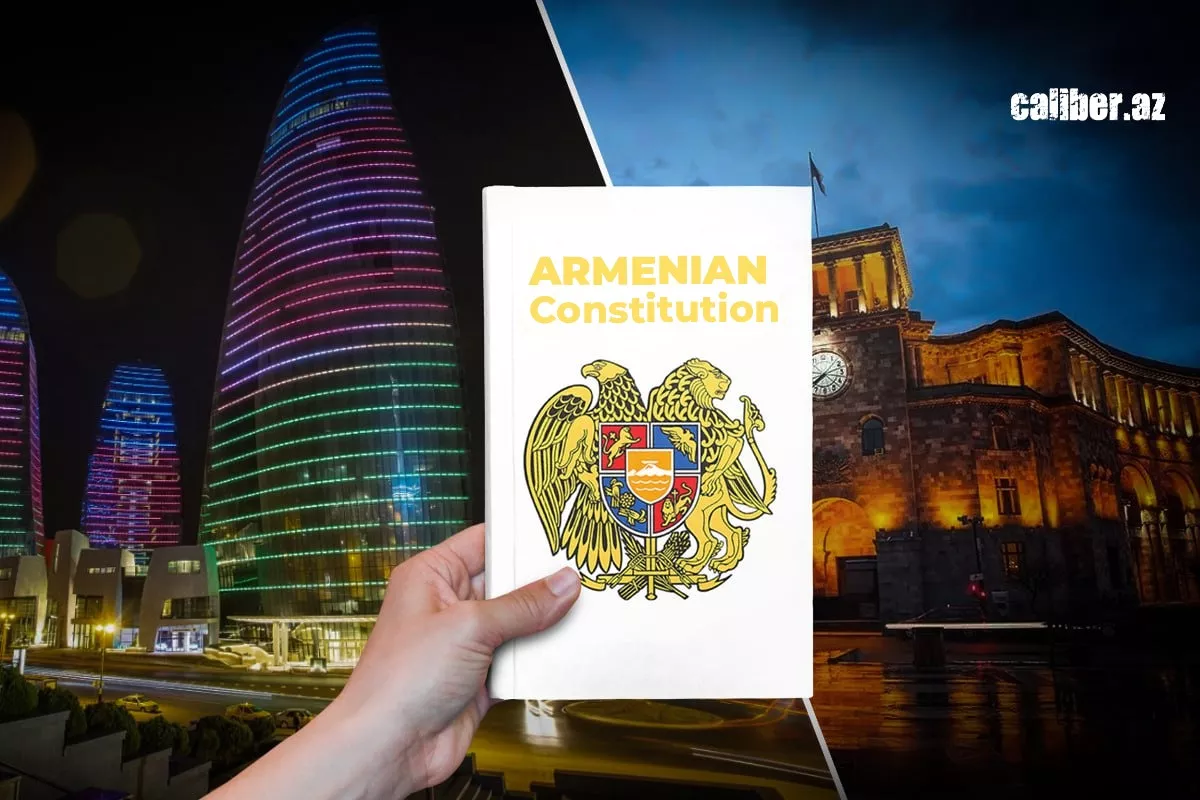Armenia’s non-diplomatic games Yerevan again clings to the Constitution
It seems that the Armenian authorities are somewhat bewildered by the fact that, in light of the recently reached Washington agreements—which envisage the establishment of long-term peace in the region—Yerevan will still have to meet Baku’s key demand by amending the country’s constitution to remove territorial claims against Azerbaijan.
In particular, this is reflected in the “fresh” statements by the country’s Foreign Minister, Ararat Mirzoyan, made during a press conference with Finland’s Foreign Minister and OSCE Chairperson, Elina Valtonen. He noted that “Armenia does not accept Baku’s demand to amend the constitution in order to sign a peace agreement.”
“Amending the constitution or adopting a new one is purely an internal matter of Armenia, a matter of our people. Armenia has never assumed—and does not intend to assume—any obligations to third parties regarding constitutional changes,” the Armenian minister said, adding that discussions about possible constitutional amendments are taking place solely within the framework of domestic public dialogue.
According to him, Azerbaijan continues to demand such changes and makes them a condition for signing a peace agreement: “We do not accept this prerequisite.”

It seems that this tirade by the Armenian minister is aimed at the segment of the neighbouring country’s audience that opposes Baku’s peace agenda. Especially considering that, before the Washington agreements were reached, similar statements periodically appeared in Armenia’s political sphere. For instance, previously, Gevorg Papoyan, Deputy Chairman of Pashinyan’s Civil Contract ruling party and Minister of Economy, had claimed that Armenia allegedly had no intention of amending the constitution at Azerbaijan’s request.
“The Republic of Armenia can amend its constitution based on the decision of the citizens of Armenia. The Republic of Armenia will not change its constitution at the request of any country; whether to amend it or not is an internal matter of the Republic of Armenia,” he said in response to a journalist’s question regarding Baku’s corresponding demand.
It should be noted that similar statements regarding the constitution were once made by Pashinyan himself. For example, during a press conference in Yerevan on August 31, 2024, he stated that “we consider the issue of Armenia’s constitution to be our internal matter. It is part of the domestic political agenda.”
However, as time and events have shown, the practice of denial in Armenian politics is merely a precursor to the inevitable acceptance of reality. Perhaps the most striking example of this is Armenia’s recognition of Karabakh as part of Azerbaijan. Despite nearly thirty years of occupation of Azerbaijani territories, no ruling regime in Yerevan had dared to acknowledge Karabakh as part of Azerbaijan, while to the international community, the Karabakh region of Azerbaijan was presented as “Armenian territory.” It is remembered that Nikol Pashinyan, in the then-occupied Khankendi, openly declared that “Karabakh is Armenia, period.”
However, this did not prevent him from going down in the history of Armenian statehood as the first leader to recognise Karabakh as part of Azerbaijan. It is no secret that he took this step only after Armenia’s crushing defeat in the 44-day war of autumn 2020, but that does not change the fact. Moreover, Pashinyan not only recognised Karabakh as part of Azerbaijan, but also developed his own concept of a “Real Armenia,” according to which Karabakh is Azerbaijani territory. That is, first and foremost.

Secondly, as part of the Washington agreements, Armenia agreed to the dissolution of the notorious OSCE Minsk Group, even though for years it had clung to it like a drowning person to a straw. In the end, however, the Armenian authorities fulfilled one of the key conditions of Baku’s peace agenda.
On the other hand, Mirzoyan’s recent loud statements contradict the Armenian leader’s recent promises, made after the agreements reached on the U.S. negotiation track.
“Armenia can amend its own constitution if the provisions of the republic’s basic law contradict the peace agreement with Azerbaijan,” he declared during a briefing in August of this year.
Thus, taking into account the facts outlined above, the following conclusion suggests itself: the Armenian leadership is currently in a state of feverish agitation, fully aware of the inevitability of fulfilling Baku’s final key demand regarding the peace agreement. Otherwise, the country risks losing the trust of both the United States and Azerbaijan. Therefore, the grandiose statements by Armenian officials regarding the constitution of the Republic of Armenia are nothing more than a sign of political nervousness in the face of the unavoidable…








